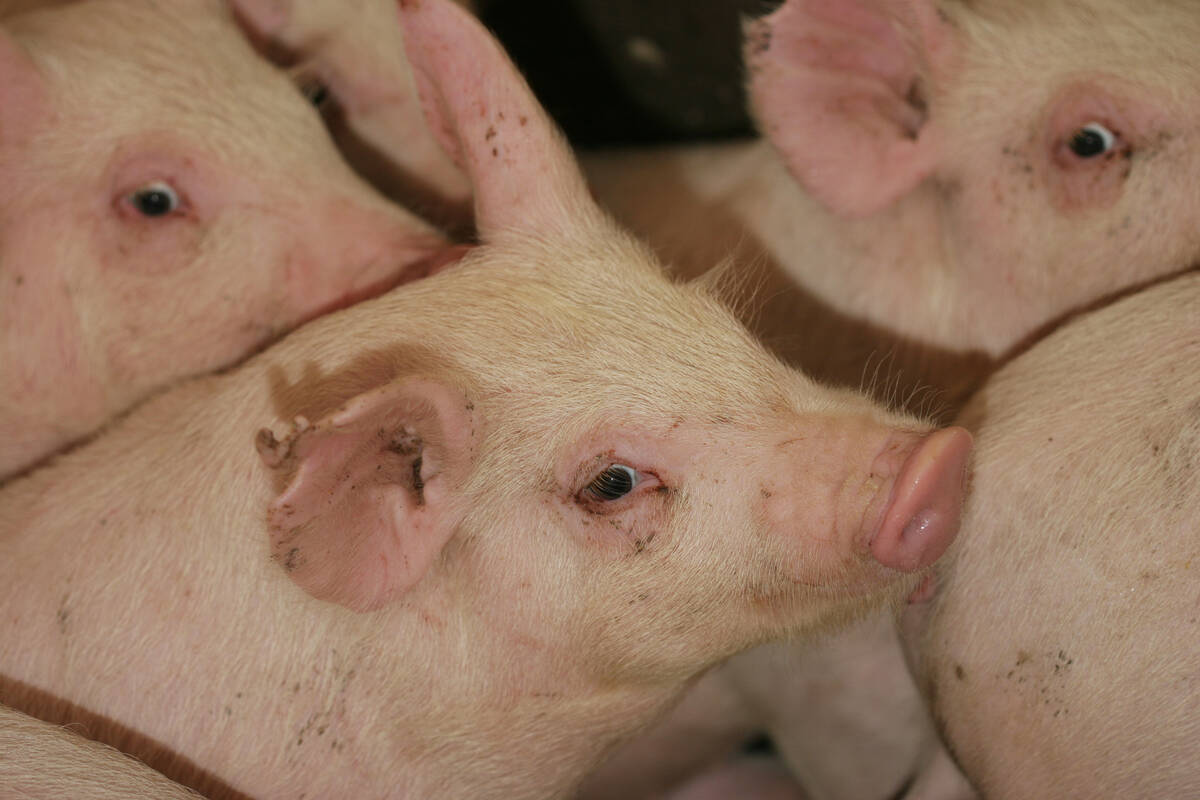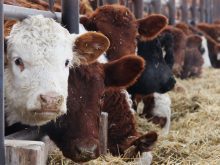PHOENIX, Ariz. – The United States has debated country-of-origin labelling for nearly 10 years and some beef industry players say it spells chaos and financial hardship.
“It is terrorizing our industry in the northwest,” said cattle feeder Cody Easterday Jan. 29 to the livestock marketing council that represents auction yards and cattle buyers.
“We are just now starting to see the discounts on our Canadian feeder cattle that are fed in Washington and shipped to the packing plants,” said the owner of Easterday Ranches, which runs a 30,000 head feedlot in Washington state.
Read Also

The Western Producer Livestock Report – September 25, 2025
The U.S. national live price average for barrows and gilts was $81.21 Sept. 17. It was $78.37 Sept. 9. U.S. hogs averaged $106.71 on a carcass basis Sept. 17, up from $106.10 Sept. 9.
He was part of a panel discussion at the National Cattlemen’s Beef Association where participants argued mandatory COOL costs money and time with few apparent benefits.
The law goes into effect this spring, although it could be held back an extra month while the new presidential administration reviews all rules the outgoing government passed.
Easterday has also launched a lawsuit against the U.S. Department of Agriculture. He is angry American packers are offering price discounts on Canadian cattle.
Packers claim the extra sorting costs them money and that foreign-born beef is harder to sell.
He buys Canadian feeder cattle to keep his yards full and running efficiently. The imports are genetically superior and easy to fatten, he said. They achieve high quality grades but end up selling at a discount under this new law.
“We are selling a higher quality animal that will in turn be a higher quality product to our customer at the retail level and we are discounting it just because of where it is born,” he said.
Easterday also worries prices paid will drop for everyone.
If a consumer sees A and B labelled beef that both carry the USDA Choice grade, that person may select the cheaper B label.
If the person is happy with the product, she will continue to buy it and that would hurt U.S. beef.
Barry Carpenter, chief executive officer of the National Meat Association representing U.S. packers and processors, and Erin Daley of the U.S. meat export federation, agreed there are few business benefits.
USDA has suggested implementation costs may exceed $2.6 billion.
“It is a law that brings on cost with no recognizable benefit,” said Carpenter, who was a USDA employee when the rule was being formulated in the 2002 farm bill. He said the bill has been evaluated many times and no new public comments will change anything.
The meat association favours letting the rule go into effect and if it does not work, amending it later.
Opponents to the final rule said there are too many exemptions because it only applies to fresh products at the retail level. The definitions for processed foods should be broadened to include products like ham or bacon.
They also oppose mixing of foreign and domestic born cattle that would be labelled Product of U.S./Canada, known as the B category.
Most packers said they prefer category A or Product of the U.S. for easier marketing.
Packers may ship category B beef back to Canada where it must be called Product of the U.S. since it was processed there, said Daley of the meat export federation.
It is ironic the U.S. is fighting similar rules in other countries to broaden trade and then implements COOL here, she said.















